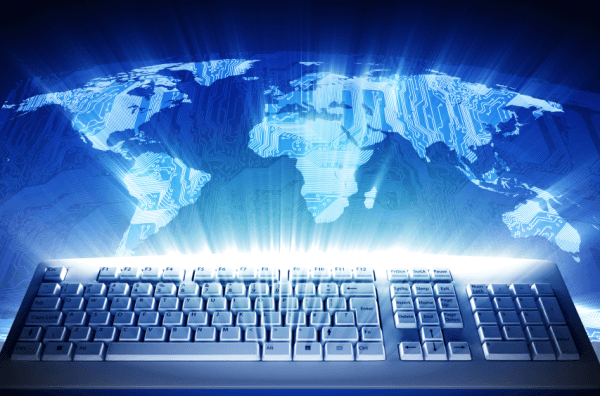Organizations have become so inundated with technology terms and trends over the years, it's difficult to know which of them will be successful and valuable, and which are just passing fads. Big data has moved beyond the buzzword stage to become a legitimate asset, but only if you can utilize it effectively. The problem here is that many businesses want to leverage it, but don't fully understand what big data entails or how to actually support it. With that in mind, let's take a deeper dive into why big data is such a big deal and what can be expected from this technology in the near future.
Defining the Trend
Big data is a collection of complex and large data sets from traditional and digital sources, including unstructured and multi-structured data that weren't typically archived before. Data is generated from a wide variety of sources and comes in a range of forms like text, video, photos, etc. Big data aims to compile all these files, organize them and analyze them for actionable insights. However, as Forbes contributor Lisa Arthur noted, the type of data that you gather and evaluate will depend on your customers as well as how your organization operates. Take stock of where your information is coming from and ensure that you have a strategy in place to accommodate all data types.
At its simplest meaning, big data sounds like an asset that organizations can use in a variety of ways to improve their capabilities. However, the trend has its share of challenges that have kept a number of businesses from taking advantage of it. The truth is that many decision-makers simply weren't prepared for how much data they were expected to handle.
Big Data Can Reveal Actionable Insights for Better Decision-Making
According to an infographic by Vouchercloud, 2.5 quintillion bytes of data are created every day. This is only expected to increase as smart devices gain momentum. Fitbits, for example, track steps, heart rate, and a number of other vital statistics. This information is great for personal use, but what if it could be sent to your physician to head off diseases or your insurance company to help get a better rate? Businesses have to be ready for situations like this, as it will improve operations and services while also empowering better decision-making.
The Promise of Big Data
Many organizations have been deterred from big data because they are unsure whether their current infrastructure is prepared to handle such a mountain of information. However, big data is going to be a necessary tool in the future to guide businesses on how to advance and what areas need improvement. A variety of industries are expected to warm up to big data within the next few years to keep up with the competition, stay ahead of the Internet of Things and fulfill customer service expectations. In an interview with Gigaom, industry expert Neeraj Sabharwal predicted that even regulated sectors like banks will seek out big data to access more accurate, real-time data to become more profitable and cost-efficient.
“Naturally, those predictions will have a much farther reach than just the financial sector, impacting everything from retail to healthcare to government services,” Sabharwal told Gigaom. “The key factor here is that with financial organizations leading the way, successes will grow and other industries will take notice.”
The biggest promises from big data are that organizations will have the information necessary to boost the customer experience and even anticipate behavior. Businesses can use big data alongside predictive analytics to drive customized services and provide satisfaction on an individual level. In an increasingly mobile world, customers want to have a personalized experience, and big data can help with this initiative. Clients will then be more likely to build a lasting relationship with your organization.
Big Data’s Bright Future
Organizations can use this information to improve their services and deliver according to current user needs.
More objects are being built with internet capabilities in mind to meld with the Internet of Things. Everything from your car to your coffeepot will be generating information, and organizations can use this information to improve their services and deliver according to current user needs. For example, if your car senses that it's low on oil, it could send a notification to your mechanic to schedule an appointment. Such technology is on its way to being a reality and big data is a major driver supporting it
.If you want to start your own big data utilization, there are a number of options to help guide your journey. TechRepublic contributor Mary Shacklett suggested defining which business cases you want to bring analytics support to and determining how well your current tools can meet these needs. Combining new and established technologies will help decrease the pressure on IT decision-makers by lessening the overall investment and rollout processes.
“The ability to combine new and established technologies in the development of analytics eases the load for IT decision makers because they don’t necessarily have to invest in new resources every time they launch an analytics project,” Shacklett wrote. “Proving the success of their analytics work also becomes easier, since staff and end users can use tools they have become familiar with.”
Big data can be a major effort for businesses to pursue, but you don't have to do it all alone. Eliassen Group provides resource augmentation to help establish your big data strategy, configure your systems and train staff on how to support the initiative. Contact us today to find out more about how to take advantage of big data and utilize its insights for the development of your business.



